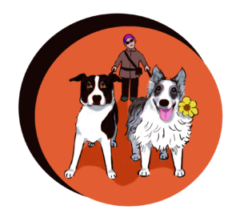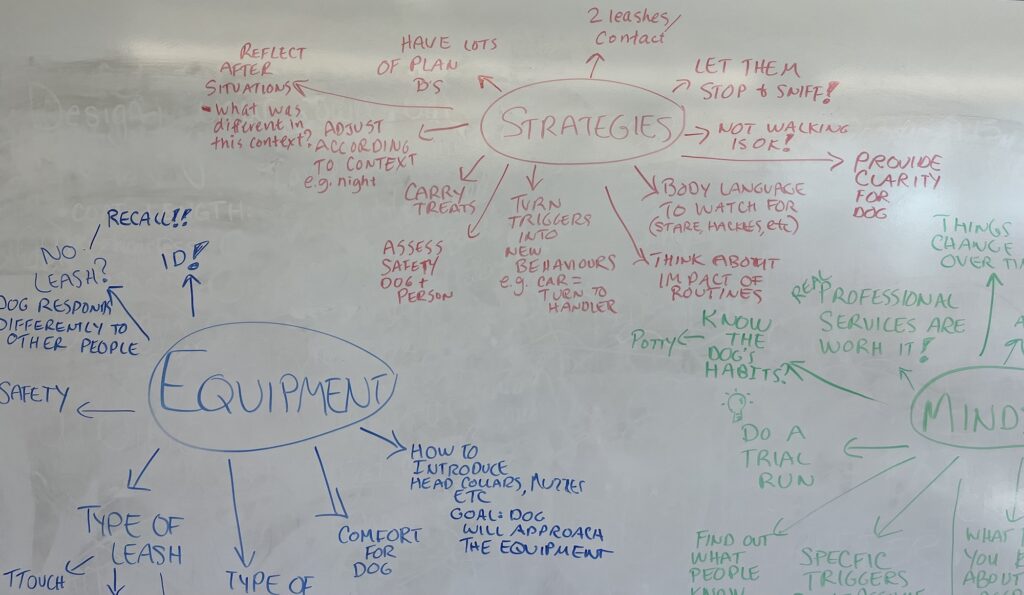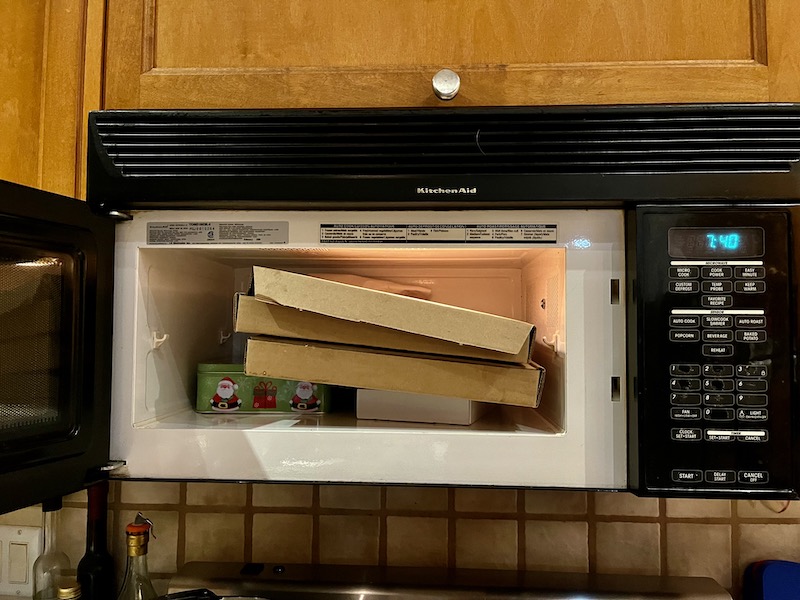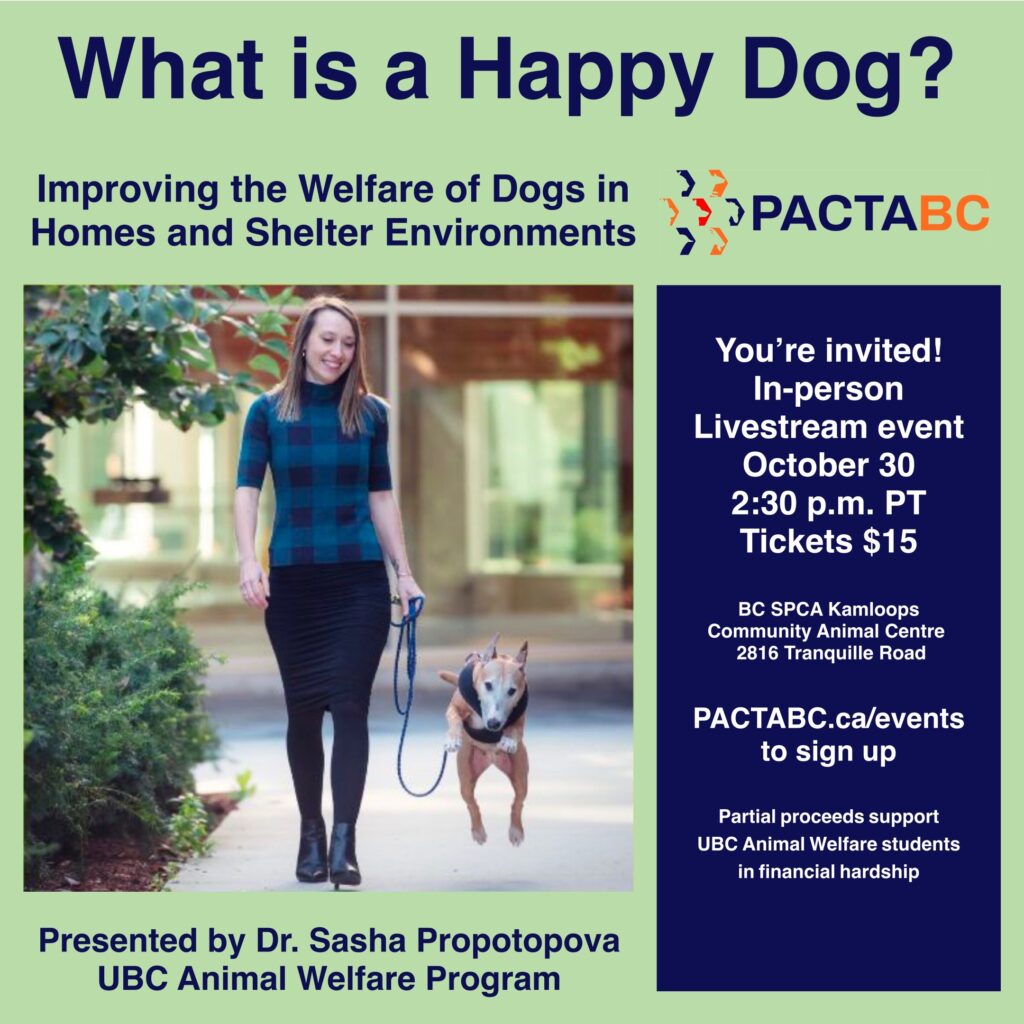This is my message to PACTA members and news subscribers. It was posted on the PACTA BC website and sent out via email today.
Happy New Year!
As we head into 2025, I would like to extend a huge thank you for supporting the Professional Animal Care & Training Association of BC. PACTA launched as a province-wide initiative in 2020 with big plans and enthusiasm, and we continue to chip away at projects that will serve to advance the wellbeing of animals. Here are some highlights from 2024.
The Peer Evaluated Animal Resource Library (PEARL) will launch in the next couple of months thanks to support from the Animal Welfare Foundation of Canada and Thompson Rivers University’s Learning Technology and Innovation. The PEARL website is a free, public-facing collection of links to books, articles, handouts, videos, infographics, and other resources. Everyone is invited to submit resources for review. Each resource is rated by a team of PACTA Professional Members. PEARL’s purpose is to help the public discern quality information and advice. As we all know, this service is very much needed!
We’ve held several successful Learning Exchange Workshops (LEWs) in Kamloops. These events, formerly known as Training Exchange Workshops (TEWs), are facilitated by volunteers and the topics for each workshop emerge through participation. We’ve been fortunate to have the use of excellent venues: Kamloops BCSPCA Community Animal Centre and Beyond The Leash Training Centre.
Topics in 2024:
- Preparing For Vet Visits
- Setting Your Puppy Up For Success
- Family Dynamic & Pets
Our hope is to encourage members around the province to host Learning Exchange Workshops, so we developed a LEW TOOLKIT which contains templates to jumpstart your planning and cases to spark ideas. The Kamloops Team would be happy to hop on a Zoom call to help you host a LEW in your community!
We continue with our 1-hour, facilitated Professional Member Roundtables focused on topics of interest. This usually involves digging into some cases, or gathering useful tips and resources to take away. There is no expectation that you come to roundtables with lots to say. Kicking back and listening is absolutely fine! This year we explored:
- New and favourite resources
- Abnormal repetitive behaviours
- Emergency preparedness
- Supporting clients
- Training plans
We have many topic ideas in the hopper for 2025, so join as a Professional Member (new, easier process!) if you haven’t already and watch this space.
We hosted 3 online talks. These were well-attended and the recordings are available.
- Amin Azadian – Dog Breed Differences: The Intricate Interplay Between the Genetic Background and Living Environment
- Julie Naismith – Conquering Canine Separation Anxiety: An Introductory Workshop for Dog Professionals
- Vicki McDonald and Robyn Andexser – Pets & Emergency Preparedness
And of course we hosted our regular Potato Chip Events. These events tend to focus on our PACTA community and projects, and how to advance our work together.
We’re buzzing with other event ideas and extend an invitation to you to become involved any way you can, even if it’s just helping to spread the word.
Finally, as many of you will know, over the past few years we have invested a great deal of research effort into regulation and licensing for dog trainers, and also designing an education pathway modelto ensure inclusive opportunities and recognition of prior learning. That is still our passion! The Canadian Association of Professional Dog Trainers is actively developing Professional Standards and National Curriculum and I have joined this group to help keep this important work moving forward.
It’s incredible what can happen when animal training and care enthusiasts gather together! Let’s continue to learn and grow in 2025!
Sylvia Currie
President, Professional Animal Care & Training Association of British Columbia
MA, BEd, CDBC
Consider getting involved in one of PACTA’s projects.
Subscribe to receive PACTA updates.

















